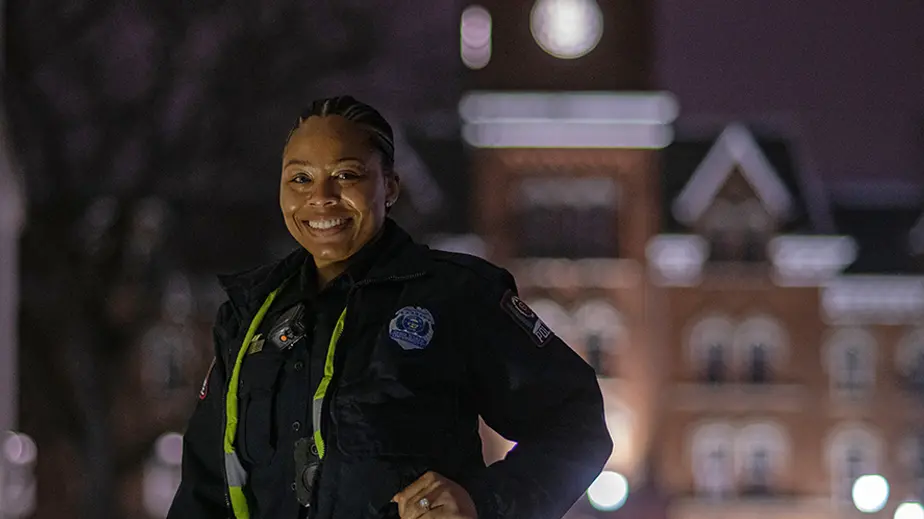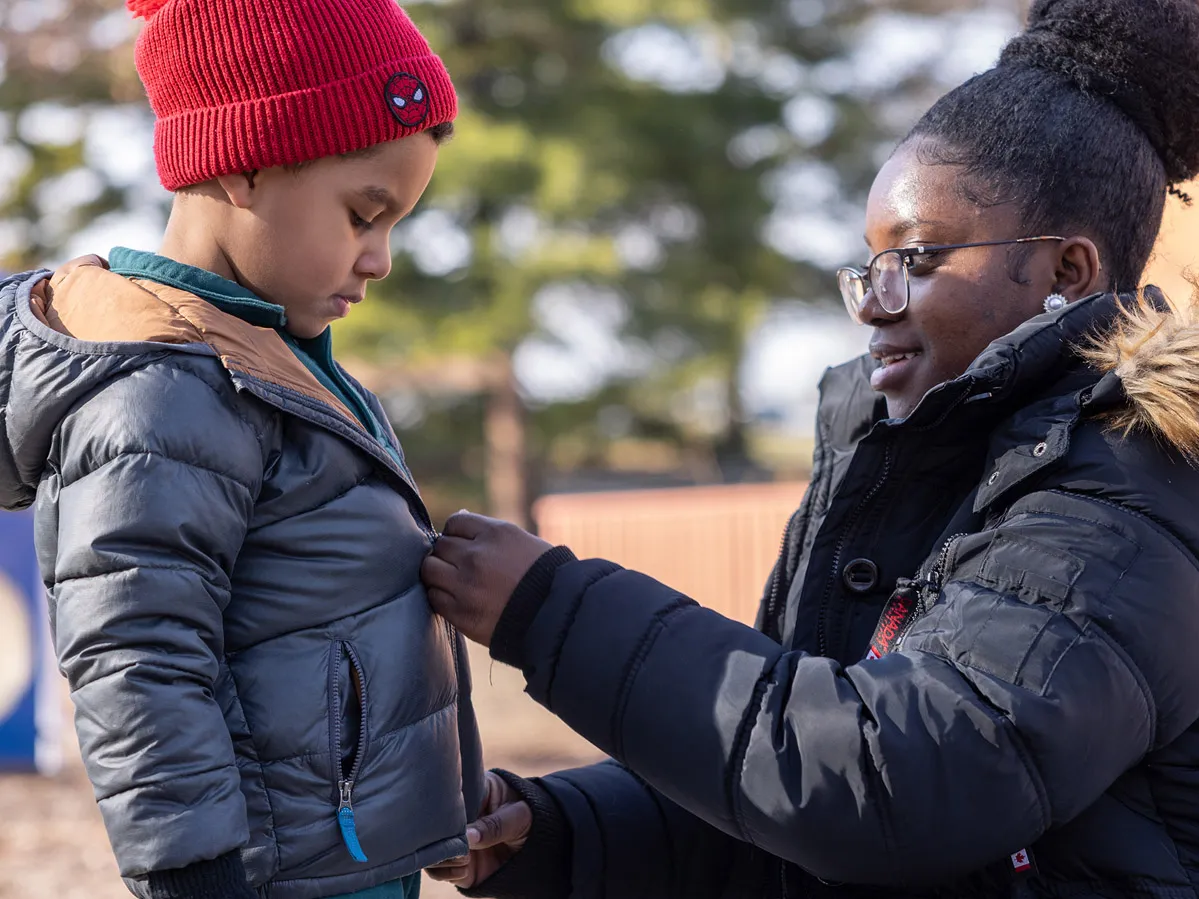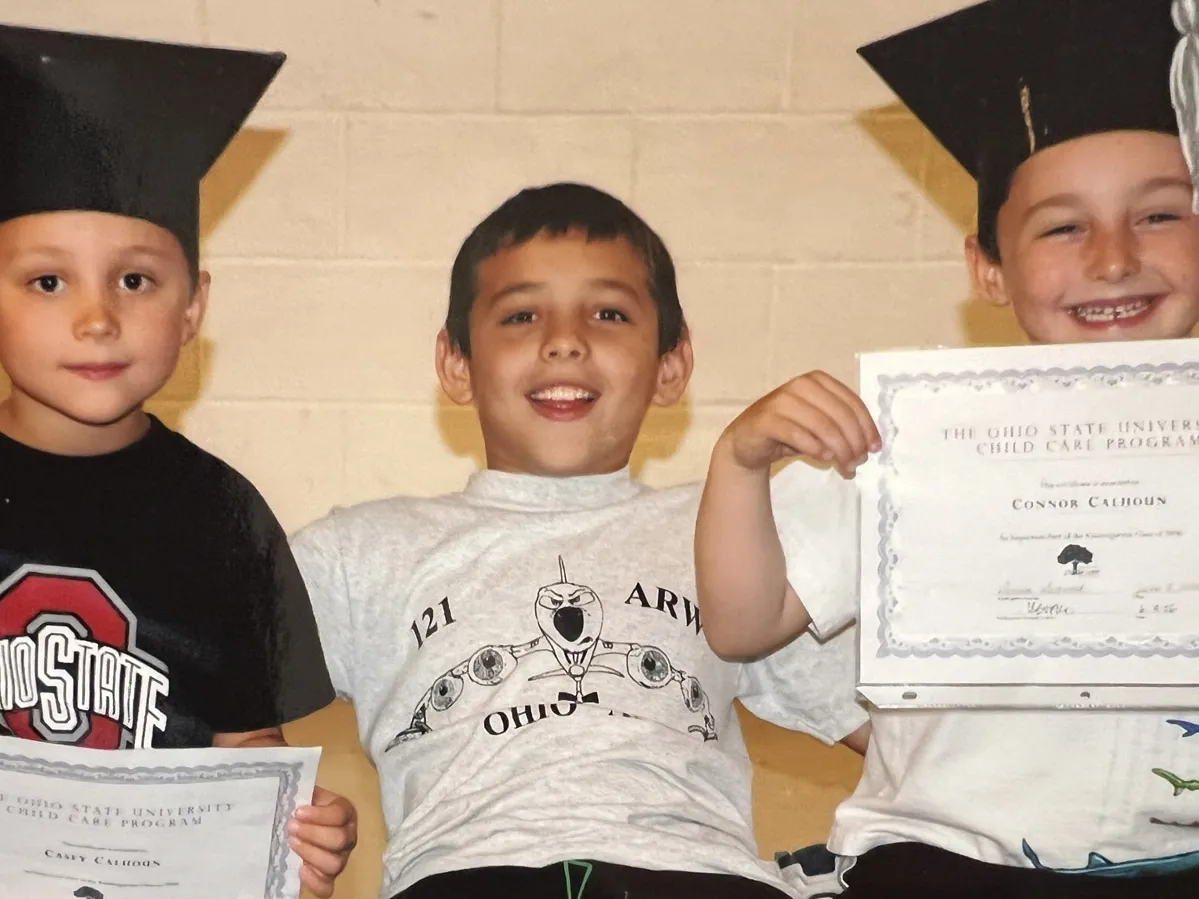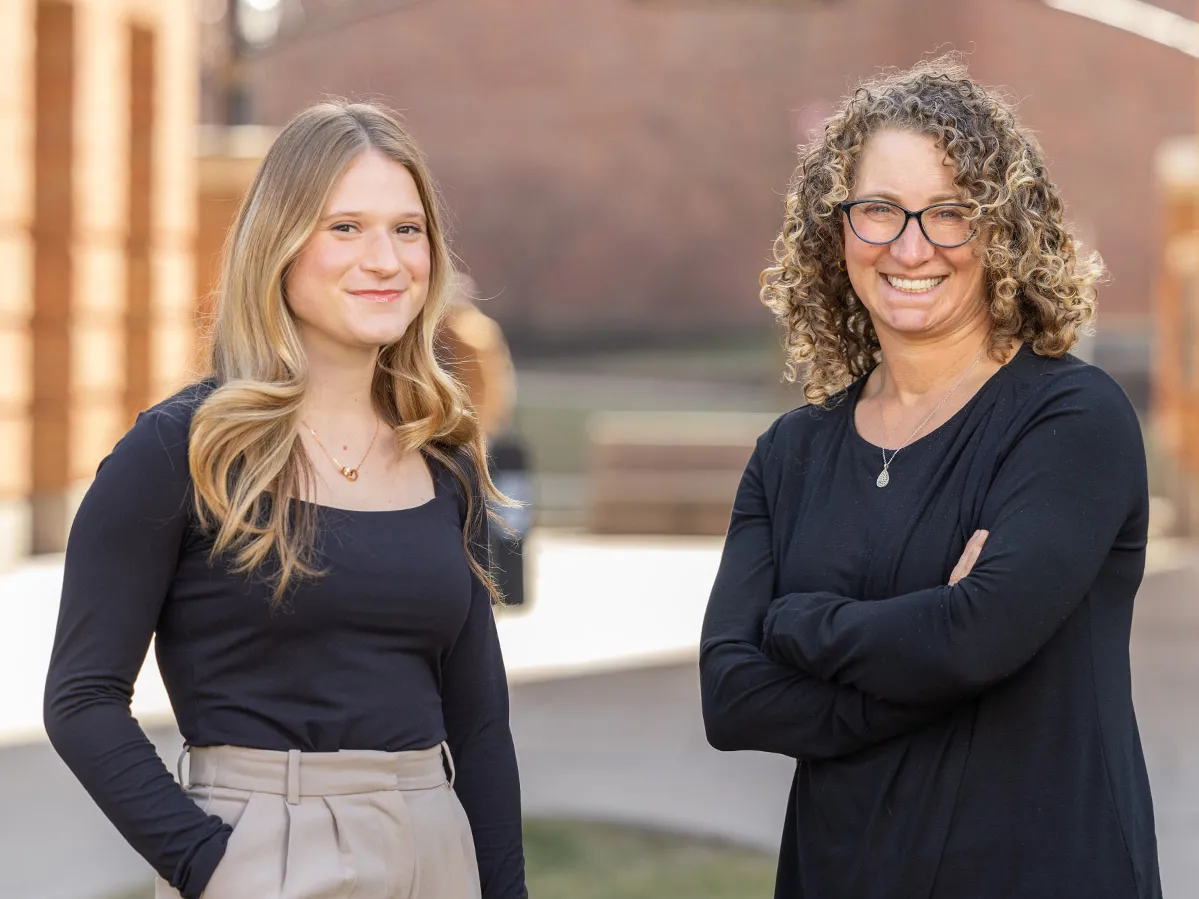Why Ohio State’s the right beat for Officer Ross
A cop, a teacher and a Black woman, she makes it a priority to build people up and spread understanding on campus and beyond.

Officer Ari Ross has worked with the Ohio State University Police Division for two and a half years.
At her last job, Officer Ari Ross was expected to focus on road safety. But she would, when her schedule allowed, sneak in quality time with those she served. “I’d play basketball with kids and bet them $5 I could make a shot,” she says. “Then I’d miss it on purpose.”
She found her fit at The Ohio State University Police Division (OSUPD), where that kind of community building is a top priority. The approach invigorates Ross, who treats every interaction — and not just the fun ones — as an opportunity to show students and others how well police encounters can go.
That’s in part because she knows the opposite. Her earliest memory of police is them threatening to break down the door of her family’s home in East Cleveland while looking for a relative. It was the female officers she met as she grew who changed her mindset.
“I was like, ‘I want to be like them. They’re so cool. They’re so nice.’”
Today she sees every interaction as an opportunity to share that kind of experience with people, especially students. “Even if they did something wrong, I want them to maintain a sense of ‘OK, yeah, this doesn’t mean I’m a bad person. I just made a bad decision.’”
Teaching comes naturally to the Marietta College alum. In the Air Force, the State Highway Patrol and now OSUPD, Ross has been tapped to lead or train colleagues. These days, she serves as a field training officer, helping new officers learn the job, and she teaches a class on the history of policing and implicit bias.
With The Ohio State Police Division for two and a half years, she was just added to the protection team for visiting dignitaries.
What Ross shares here is a rundown of 24 hours when she didn’t teach or have special assignments. Just a regular day in her life.
10:30 a.m.
Wake up, say my daily affirmations and make my bed, a habit from my days in the military. People who make their beds are said to be more disciplined and productive members of society.
11 a.m.
Meal prep while listening to a Joel Osteen podcast or motivational speech. I’m not really religious, but I like Osteen because he teaches plainly.
12:15 p.m.
Work out. It sets the tone for my day, and maintaining a high level of fitness is great for mental health and my profession in general. My current fitness goal is to build more lean muscle.
2:45 p.m.
Get dressed in the locker room at work. As I do most days, I left my uniform here as a reminder that work stays at work. I catch up with co-workers to see if I’ve missed anything while off.
3 p.m.
At the briefing in Blankenship Hall, the lieutenant goes over reports from the previous day and shares information we need for today. We pick up keys for our assigned car and Narcan, an overdose reversal medication.
3:28 p.m.
Vehicle inspection. I make sure everything is set, check weapons and then get after my day. I like to start with a few building checks in the busy parts of campus and touch base with folks at the medical center. As a former state trooper, I am accustomed to driving fast and under pressure for emergencies, so I have to remind myself to drive slowly.
4 p.m.
Head to East Hospital, a patrol assignment I get maybe twice a week. The East and main hospitals are areas with a highly diverse ethnic population. One of my favorite parts of the job is showing people that just because someone is different, doesn’t mean something is wrong with them. While patrolling, I try to interact with hospital security and medical staff as much as possible. This shows I’m there to help in case they should need anything.
7:25 p.m.
Building check of the Adventure Recreation Center, where I stop to chat. The students’ creativity fascinates me, and seeing all of the shenanigans and interesting things they get up to is my favorite part of the job. I love talking to students about TikTok, which I refuse to get because all of my friends are addicted to it.
7:40 p.m.
Return to the station for break. There, I catch up with Adrienne Ward, an officer I helped train when she was new. As a part-time field-training officer, I often show new officers the ropes and agency expectations. For that, we ride together and I keep daily records of how they perform. It’s a critical role I am honored to have.
8:20 p.m.
Respond to a call at Doan Hall about a woman who refuses to leave as hospital visiting hours end. When I get there, I find her distraught and frustrated. I make time to listen and find out she has power of attorney for her sick daughter. I help her find the resources she needs to file the next day to establish her right to stay. Finally, I update hospital security.
9:48 p.m.
Patrol completed, I return to the station to write reports. But one late call sends me to the Tuttle Garage, where a car has rammed through the exit barrier. We capture camera footage of the vehicle for future reference.
11 p.m.
Arrive at the Columbus Division of Police 4th precinct substation for a criminal interdiction partnership I participate in. For four more hours, I will ride with a Columbus officer in areas where students live to help increase safety and officer visibility. I do this several times a week when my schedule permits.
3 a.m.

End my workday and return home.
3:30 a.m.
On days when I get home earlier, I call my sister Alese to let her know I’m home safe. Tonight, it’s too late for that. I complete my skin care routine, part of the time I make for self-care, and prepare for the following day.
4:30 a.m.
Bedtime. I have to be up before 11 a.m. tomorrow. My ideal is getting nine hours of sleep, but that’s not the usual.









